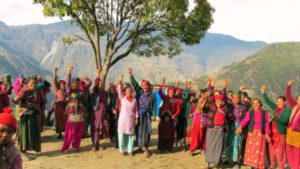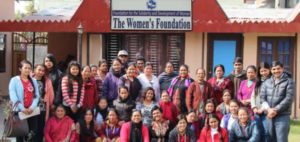Women Empowerment in Nepal
*Introduction**
Women empowerment is not just a global issue but a significant challenge in developing countries like Nepal. In a society where patriarchal norms often dictate women’s roles and opportunities, empowerment becomes a critical pathway to gender equality and social change.

**The Current Scenario**
Nepal’s cultural landscape is rich and diverse, but it also harbors deep-rooted gender biases. Women are often relegated to secondary roles, confined to household chores, and denied access to education and employment.

**Challenges Faced by Women in Nepal**
- **Societal Constraints**: Traditional beliefs often limit women’s roles to domestic spheres, hindering their participation in public life.
- **Lack of Education**: The conservative mindset has led to a low literacy rate among women, especially in rural areas.
- **Financial Dependence**: Without proper education and job opportunities, women remain financially dependent, lacking autonomy and decision-making power.
- **Health and Safety Concerns**: Women’s health and safety are often compromised, with limited access to healthcare and increased vulnerability to domestic violence.
**Efforts to Empower Women**
Various organizations and governmental bodies are working to empower women in Nepal:
- **Non-Formal Education**: Tailored programs to educate women who missed formal schooling.
- **Income-Generating Training**: Skill development initiatives to enable women to earn a livelihood.
- **Legal Awareness**: Workshops and campaigns to inform women of their legal rights and protections.
- **Community Engagement**: Encouraging community participation to change societal attitudes towards women.

**The Impact of Empowerment Programs**
The concerted efforts are leading to:
- **Increased Literacy**: More women are accessing education, leading to higher literacy rates.
- **Economic Independence**: Women are engaging in income-generating activities, gaining financial independence.
- **Social Change**: Gradual shifts in societal attitudes are allowing women more freedom and respect.
- **Political Participation**: More women are taking part in local governance and decision-making processes.
**Case Study: The Women’s Foundation Nepal’s Scholarship Program**
The Women’s Foundation Nepal (WFN) is actively working to break the cycle of poverty in Nepal by providing educational scholarships to children from underprivileged families. Recognizing the extreme poverty that many families face, which often forces children into labor at a young age, WFN has taken significant steps to ensure that education is accessible to all.

**Program Overview**
WFN’s scholarship program covers tuition fees, uniforms, and essential school supplies, enabling children to pursue their educational aspirations without financial burdens. The program is transformative, not only providing immediate educational opportunities but also laying the foundation for promising employment in the future.

**Impact**
- **Breaking the Cycle of Poverty**: By granting access to education, WFN enables children to enjoy their childhood and grow into adults who can independently provide for their families, including their children’s education.
- **Supporting Women and Children**: WFN’s sponsorship and scholarship programs also cover living and education costs for women and children from the Shelter Home, including shelter, food, healthcare, and skills training.
- **Widespread Reach**: The Women’s Foundation Nepal provides scholarships for more than 1,000 children belonging to poor families all over Nepal, changing the cycle of poverty and creating better lives.
**Personal Connection**
Those who contribute to the scholarship program are kept updated regularly on the child’s educational journey. WFN also furnishes comprehensive background information about the family and the child being supported, creating a personal connection between the donor and the recipient.
**Other Case Studies and Success Stories**
– **Women’s Cooperatives**: Many women have formed cooperatives, engaging in small-scale businesses and supporting each other.
– **Healthcare Initiatives**: Female community health volunteers are playing a crucial role in rural healthcare.
– **Educational Scholarships**: Special scholarships for girls are encouraging more families to send their daughters to school.
**Conclusion**
Women empowerment in Nepal is a journey filled with challenges and triumphs. The path is fraught with obstacles, but the relentless efforts of various organizations, communities, and individuals are making a difference. The focus on education, economic independence, legal awareness, and community engagement is paving the way for a more equitable and just society.









Leave a Reply